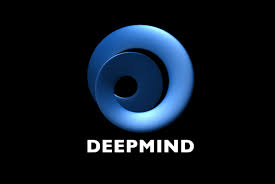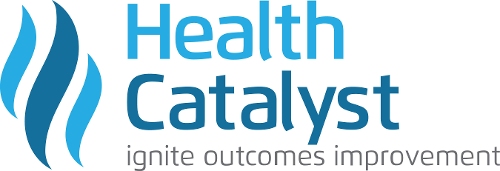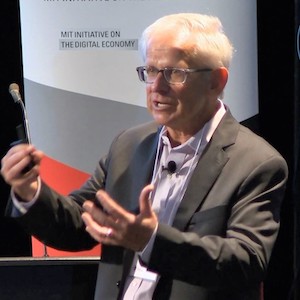machine learning
See the following -
Percona Announces Speakers, Tutorials and Sponsors for Percona Live Open Source Database Conference Europe 2017
 Percona, the company that delivers enterprise-class MySQL®, MongoDB® and other open source database solutions and services, today revealed the initial roster of speakers, tutorials and sponsors for Percona Live Open Source Database Conference Europe 2017, taking place September 25-27, 2017 at the Radisson Blu Royal Hotel in Dublin, Ireland. The special Early Bird registration discount rate is only available until August 8, 2017, and a special room rate at the Radisson Blu Royal Hotel expires on August 14, 2017. Sponsorship opportunities are still available...
Percona, the company that delivers enterprise-class MySQL®, MongoDB® and other open source database solutions and services, today revealed the initial roster of speakers, tutorials and sponsors for Percona Live Open Source Database Conference Europe 2017, taking place September 25-27, 2017 at the Radisson Blu Royal Hotel in Dublin, Ireland. The special Early Bird registration discount rate is only available until August 8, 2017, and a special room rate at the Radisson Blu Royal Hotel expires on August 14, 2017. Sponsorship opportunities are still available...
- Login to post comments
Plurilock Security and Cycura to Co-Host Healthcare Cybersecurity Webinar
 Plurilock Security Inc...an innovative cybersecurity company that provides frictionless and continuous authentication using machine learning and behavioral biometrics and Cycura, a subsidiary of WELL Health Technologies Corp. and a leading provider of proactive cybersecurity services, today announced that they will be co-hosting a virtual panel discussion, titled 'Patient Data in the Crosshairs: Healthcare Breaches of 2020' on Thursday, November 12th at 2:00 pm (EST).
Plurilock Security Inc...an innovative cybersecurity company that provides frictionless and continuous authentication using machine learning and behavioral biometrics and Cycura, a subsidiary of WELL Health Technologies Corp. and a leading provider of proactive cybersecurity services, today announced that they will be co-hosting a virtual panel discussion, titled 'Patient Data in the Crosshairs: Healthcare Breaches of 2020' on Thursday, November 12th at 2:00 pm (EST).
- Login to post comments
Praedico
 Praedico is a platform developed by Bitscopic that provides powerful visualization, analytics, and reporting capabilities with a focus on Public Health Biosurveillance and early detection, monitoring, and forecasting of infectious disease outbreaks. Using Big Data and machine learning technologies, Praedico will: Analyze vast amounts of data across multiple EHR (Electronic Health Records) domains, Detect relevant abnormalities to discover the “unknown unknowns” within the data, Alert users of abnormalities and facilitate the sharing of appropriate data with key decision makers.
Praedico is a platform developed by Bitscopic that provides powerful visualization, analytics, and reporting capabilities with a focus on Public Health Biosurveillance and early detection, monitoring, and forecasting of infectious disease outbreaks. Using Big Data and machine learning technologies, Praedico will: Analyze vast amounts of data across multiple EHR (Electronic Health Records) domains, Detect relevant abnormalities to discover the “unknown unknowns” within the data, Alert users of abnormalities and facilitate the sharing of appropriate data with key decision makers.
- Login to post comments
Q&A with Andy Oram: How Can We Tell Whether Predictive Analytics Are Biased?
 The fear of reproducing society's prejudices through computer algorithms is being hotly discussed in both academic publications and the popular press. Just a few of the publications warning about bias in predictive analytics include the New York Times, the Guardian, the Harvard Business Review, and particularly a famous and hotly contested article by Propublica on predictions of recidivism among criminal defendants...
The fear of reproducing society's prejudices through computer algorithms is being hotly discussed in both academic publications and the popular press. Just a few of the publications warning about bias in predictive analytics include the New York Times, the Guardian, the Harvard Business Review, and particularly a famous and hotly contested article by Propublica on predictions of recidivism among criminal defendants...
- Login to post comments
Report: Ransomware Attacks on IoT Medical Devices Will Likely Increase
Cyber attackers are increasingly breaching Internet-enabled medical devices using ransomware and this is likely to continue for the next two to four years, according to Intel Security’s recent McAfee Labs 2017 Threats Predictions Report. According to the threat predictions report, in which Intel Security interviewed 31 security thought leaders, while it is not currently known why attackers are breaching medical devices that collect patient data, the attacks are happening and medical data is being exfiltrated...
- Login to post comments
Researchers from Human Longevity, Inc. Publish Paper Detailing Results of Deep Sequencing of 10,545 Human Genomes
 Researchers from Human Longevity, Inc. (HLI), the genomics-based, technology-driven company revolutionizing health, have published results today of their high quality, in-depth sequencing (30 to 40X coverage) of 10,545 human genomes. The paper, which represents the most genomes sequenced to date at high coverage, was led by first author Amalio Telenti, M.D., Ph.D., and senior author, J. Craig Venter, Ph.D., and is published today in the journal Proceedings of the National Academy of Sciences (PNAS)...
Researchers from Human Longevity, Inc. (HLI), the genomics-based, technology-driven company revolutionizing health, have published results today of their high quality, in-depth sequencing (30 to 40X coverage) of 10,545 human genomes. The paper, which represents the most genomes sequenced to date at high coverage, was led by first author Amalio Telenti, M.D., Ph.D., and senior author, J. Craig Venter, Ph.D., and is published today in the journal Proceedings of the National Academy of Sciences (PNAS)...
- Login to post comments
Revealed: Google AI Has Access to Huge Haul of NHS Patient Data
 It’s no secret that Google has broad ambitions in healthcare. But a document obtained by New Scientist reveals that the tech giant’s collaboration with the UK’s National Health Service goes far beyond what has been publicly announced. The document – a data-sharing agreement between Google-owned artificial intelligence company DeepMind and the Royal Free NHS Trust – gives theclearest picture yet of what the company is doing and what sensitive data it now has access to...
It’s no secret that Google has broad ambitions in healthcare. But a document obtained by New Scientist reveals that the tech giant’s collaboration with the UK’s National Health Service goes far beyond what has been publicly announced. The document – a data-sharing agreement between Google-owned artificial intelligence company DeepMind and the Royal Free NHS Trust – gives theclearest picture yet of what the company is doing and what sensitive data it now has access to...
- Login to post comments
Survey: Healthcare Execs See Poor ROI from EHRs but Optimistic about Analytics
 The billions in taxpayer dollars spent on electronic health records (EHRs) since 2009 have unfortunately generated a poor return for the nation’s healthcare system, according to a survey of more than 1,100 healthcare professionals conducted by Salt Lake City-based data analytics vendor Health Catalyst. Health Catalyst polled healthcare professionals attending the fourth annual Healthcare Analytics Summit September 12-14 in Salt Lake City...
The billions in taxpayer dollars spent on electronic health records (EHRs) since 2009 have unfortunately generated a poor return for the nation’s healthcare system, according to a survey of more than 1,100 healthcare professionals conducted by Salt Lake City-based data analytics vendor Health Catalyst. Health Catalyst polled healthcare professionals attending the fourth annual Healthcare Analytics Summit September 12-14 in Salt Lake City...
- Login to post comments
Survey: Healthcare Technology Pros See Poor Return On Investment from EHRs
 The billions in taxpayer dollars spent on electronic health records (EHRs) since 2009 have unfortunately generated a poor return for the nation’s healthcare system, according to a survey of more than 1,100 healthcare professionals attending the fourth annual Healthcare Analytics Summit™ (HAS 17), Sept. 12-14 in Salt Lake City. Fortunately, survey respondents also overwhelmingly signaled that analytics software—a technology designed to make the clinical data in EHRs more valuable—holds great promise for the future...
The billions in taxpayer dollars spent on electronic health records (EHRs) since 2009 have unfortunately generated a poor return for the nation’s healthcare system, according to a survey of more than 1,100 healthcare professionals attending the fourth annual Healthcare Analytics Summit™ (HAS 17), Sept. 12-14 in Salt Lake City. Fortunately, survey respondents also overwhelmingly signaled that analytics software—a technology designed to make the clinical data in EHRs more valuable—holds great promise for the future...
- Login to post comments
The Appeal of Graph Databases for Health Care
 A lot of valuable data can be represented as graphs. Genealogical charts are a familiar example: they represent people as boxes, connected by lines that represent parent/child or marriage relationships. In mathematics and computer science, graphs have become a discipline all their own. Now their value for health care is emerging. Graph computing made a significant advance this past February in the form of a Graph Data Science (GDS) library for the free and open source Neo4j graph database. Graph databases are proving their value in clinical research and public health; I wonder whether they can also boost analytics for providers. This article explains what's special about graph databases, and some applications in health care highlighted by recent webinars offered by the Neo4j company.
A lot of valuable data can be represented as graphs. Genealogical charts are a familiar example: they represent people as boxes, connected by lines that represent parent/child or marriage relationships. In mathematics and computer science, graphs have become a discipline all their own. Now their value for health care is emerging. Graph computing made a significant advance this past February in the form of a Graph Data Science (GDS) library for the free and open source Neo4j graph database. Graph databases are proving their value in clinical research and public health; I wonder whether they can also boost analytics for providers. This article explains what's special about graph databases, and some applications in health care highlighted by recent webinars offered by the Neo4j company.
- Login to post comments
The Emergence of Artificial Intelligence And Why Open Source Matters
 Sharing knowledge and sharing code has always been a key driver for innovation in Artificial Intelligence. Researchers have gathered together since AI was established as a field to develop and advance novel techniques, from Natural Language Processing to Artificial Neural Networks, from Machine Learning to Deep Learning. The Open Source community has played a key role in advancing AI and bringing it to solve real-world problems. Libraries and frameworks like TensorFlow, PyTorch, Keras, and Scikit-learn, for example, have allowed researchers and data scientists to study and make use of AI.
Sharing knowledge and sharing code has always been a key driver for innovation in Artificial Intelligence. Researchers have gathered together since AI was established as a field to develop and advance novel techniques, from Natural Language Processing to Artificial Neural Networks, from Machine Learning to Deep Learning. The Open Source community has played a key role in advancing AI and bringing it to solve real-world problems. Libraries and frameworks like TensorFlow, PyTorch, Keras, and Scikit-learn, for example, have allowed researchers and data scientists to study and make use of AI.
- Login to post comments
The Importance of High Quality Data for Artificial Intelligence Reliability
 Artificial Intelligence (AI) is a hot topic right now in medical practice. Though there are many reasons why AI solutions have become so popular, one of the biggest reasons is that AI has the potential to reduce clinical burnout and fatigue by improving Clinical Decision Support in electronic health record (EHR) systems. To understand how this can be achieved, we must first understand what AI is and how it works...For Healthcare, AI and Machine Learning algorithms must rely on copious amounts of granular, high-quality data.
Artificial Intelligence (AI) is a hot topic right now in medical practice. Though there are many reasons why AI solutions have become so popular, one of the biggest reasons is that AI has the potential to reduce clinical burnout and fatigue by improving Clinical Decision Support in electronic health record (EHR) systems. To understand how this can be achieved, we must first understand what AI is and how it works...For Healthcare, AI and Machine Learning algorithms must rely on copious amounts of granular, high-quality data.
- Login to post comments
The Missing Ingredient in Today's Patient Portals: Network Effects (Part 4)
 As described in the first three posts in this series, today’s patient portals are inherently flawed and doomed to mediocrity. The result is that today’s patient portals cannot achieve a critical mass of adoption and utilization, and therefore portals can’t achieve network effects. In this post, we will: Summarize key points from the first three posts in this series; Explain how today’s patient portals miss out on three types of network effects; Explain the implications: why tomorrow’s portals must be reconfigured to achieve network effects
As described in the first three posts in this series, today’s patient portals are inherently flawed and doomed to mediocrity. The result is that today’s patient portals cannot achieve a critical mass of adoption and utilization, and therefore portals can’t achieve network effects. In this post, we will: Summarize key points from the first three posts in this series; Explain how today’s patient portals miss out on three types of network effects; Explain the implications: why tomorrow’s portals must be reconfigured to achieve network effects
- Login to post comments

